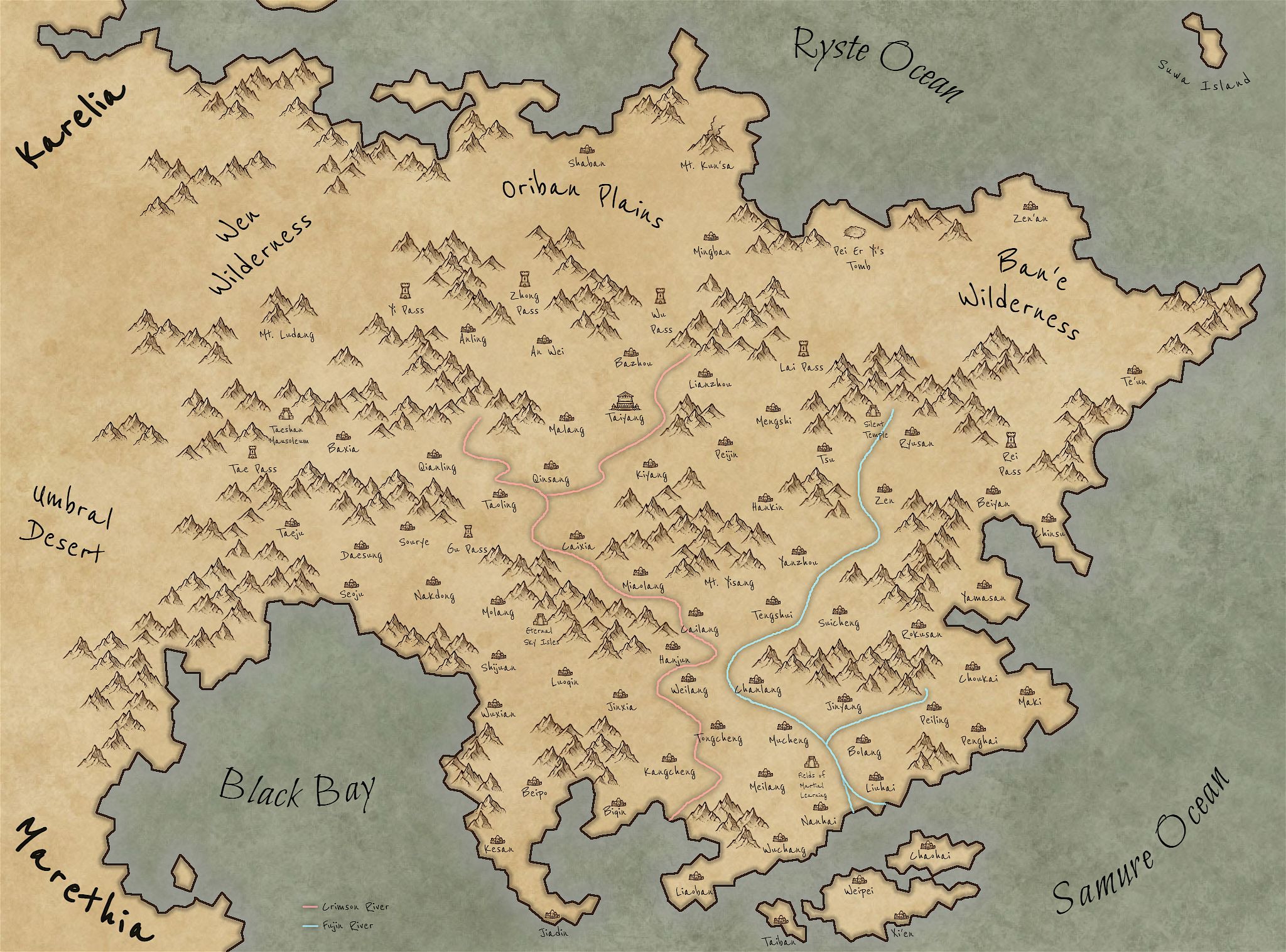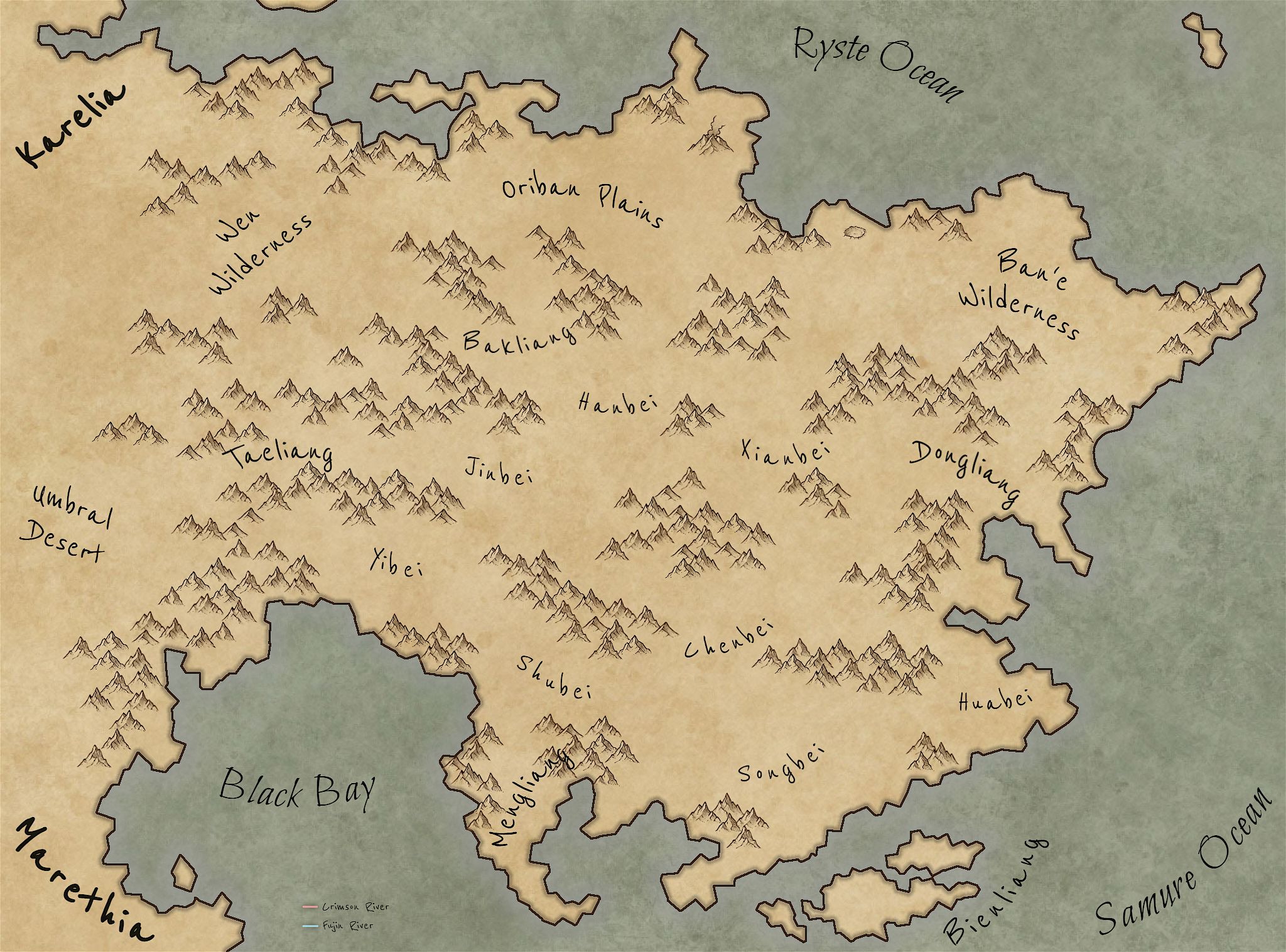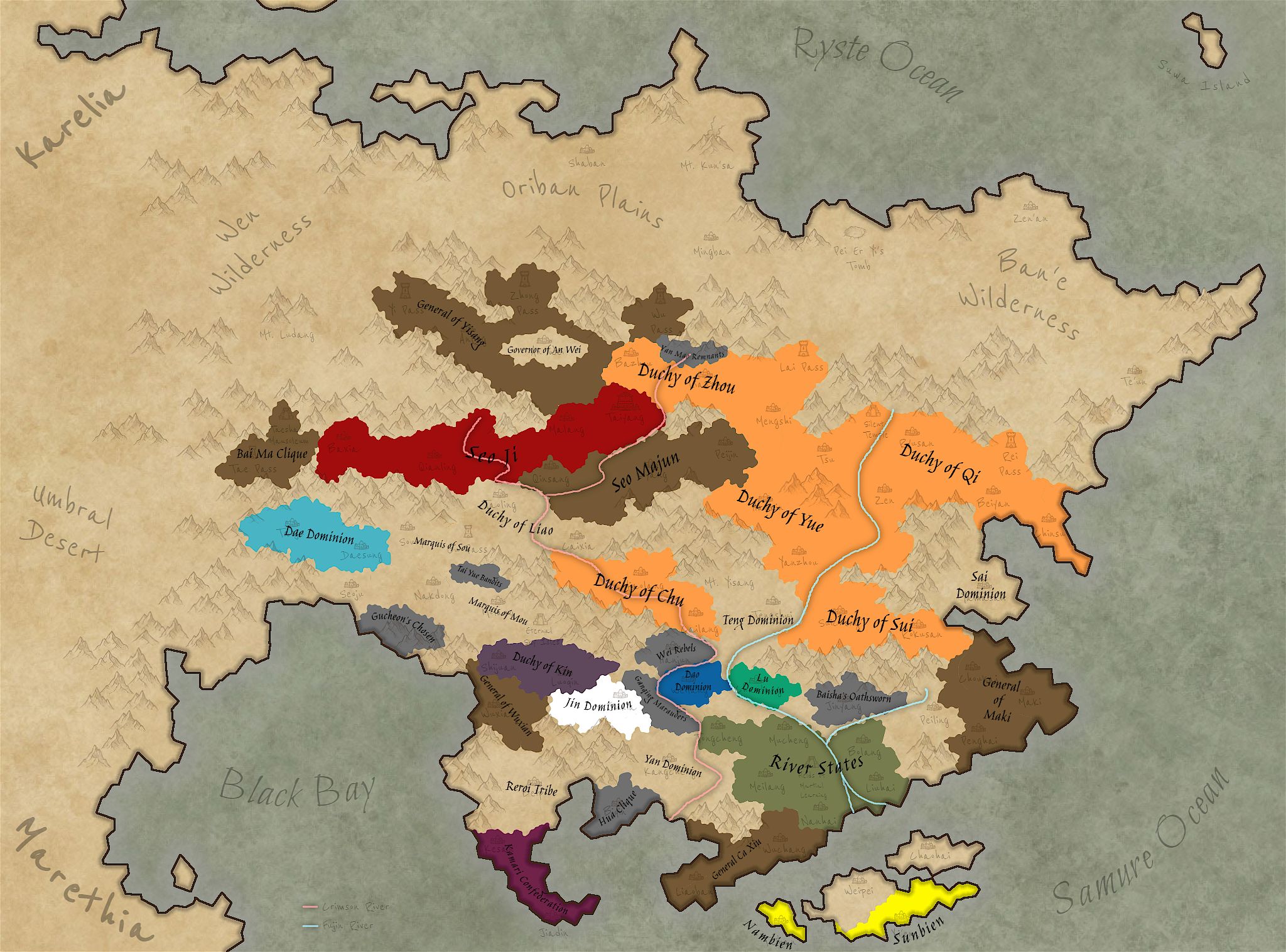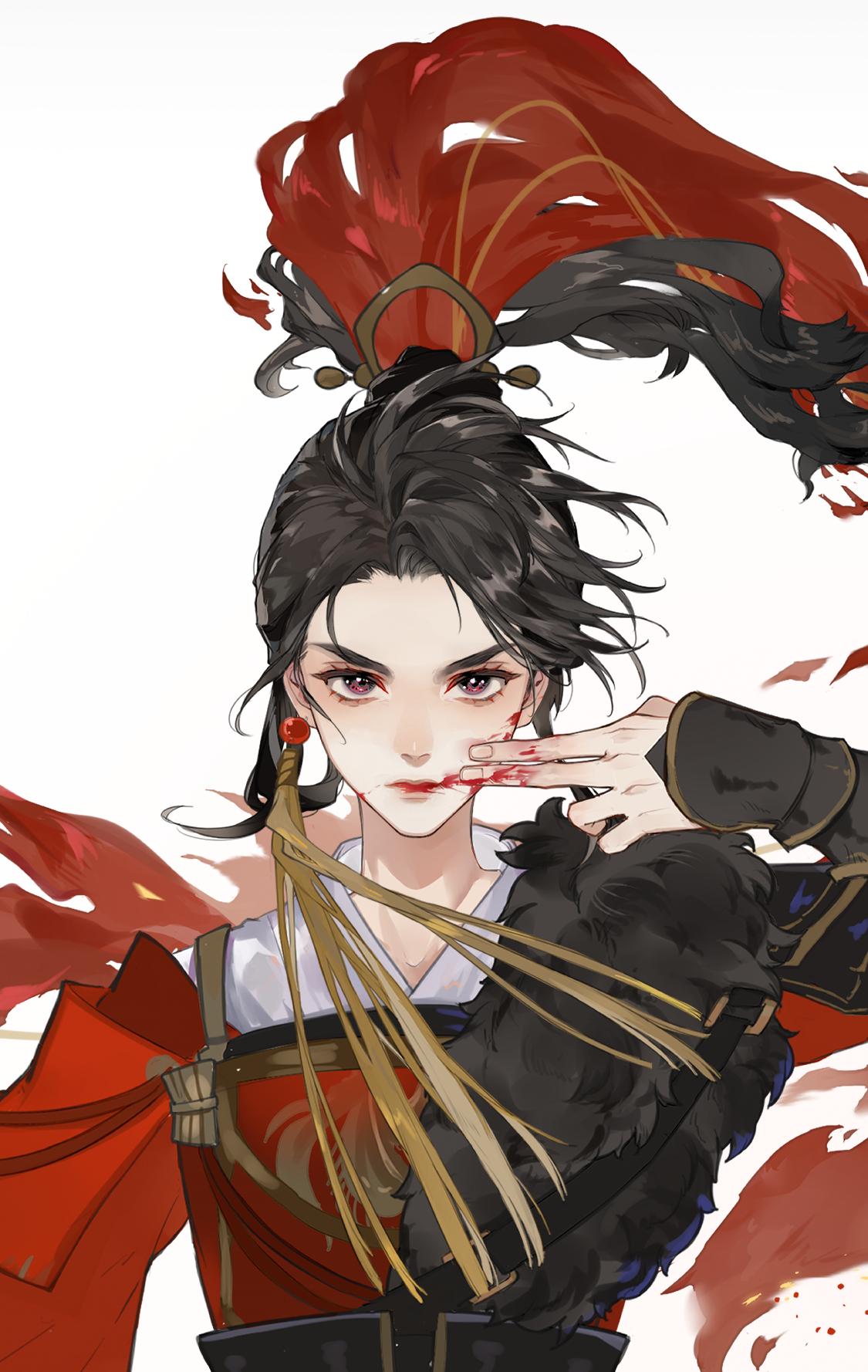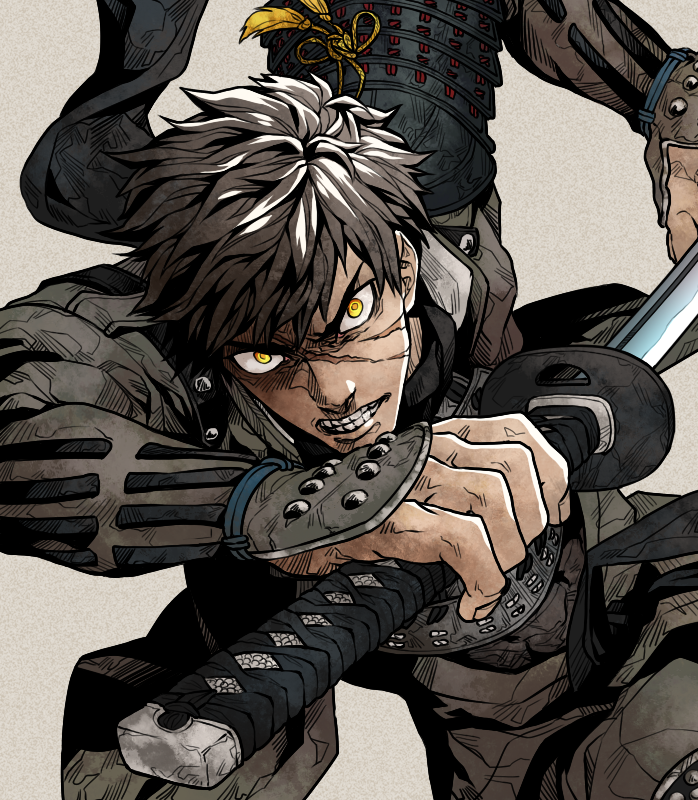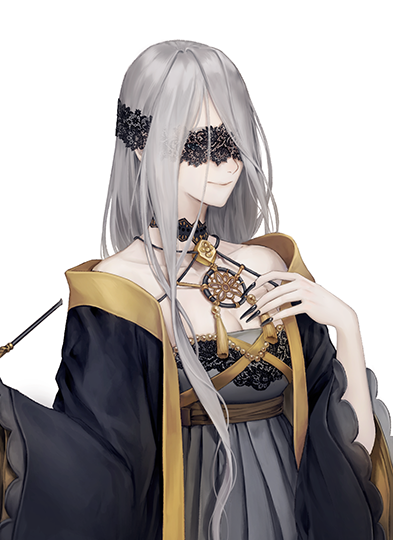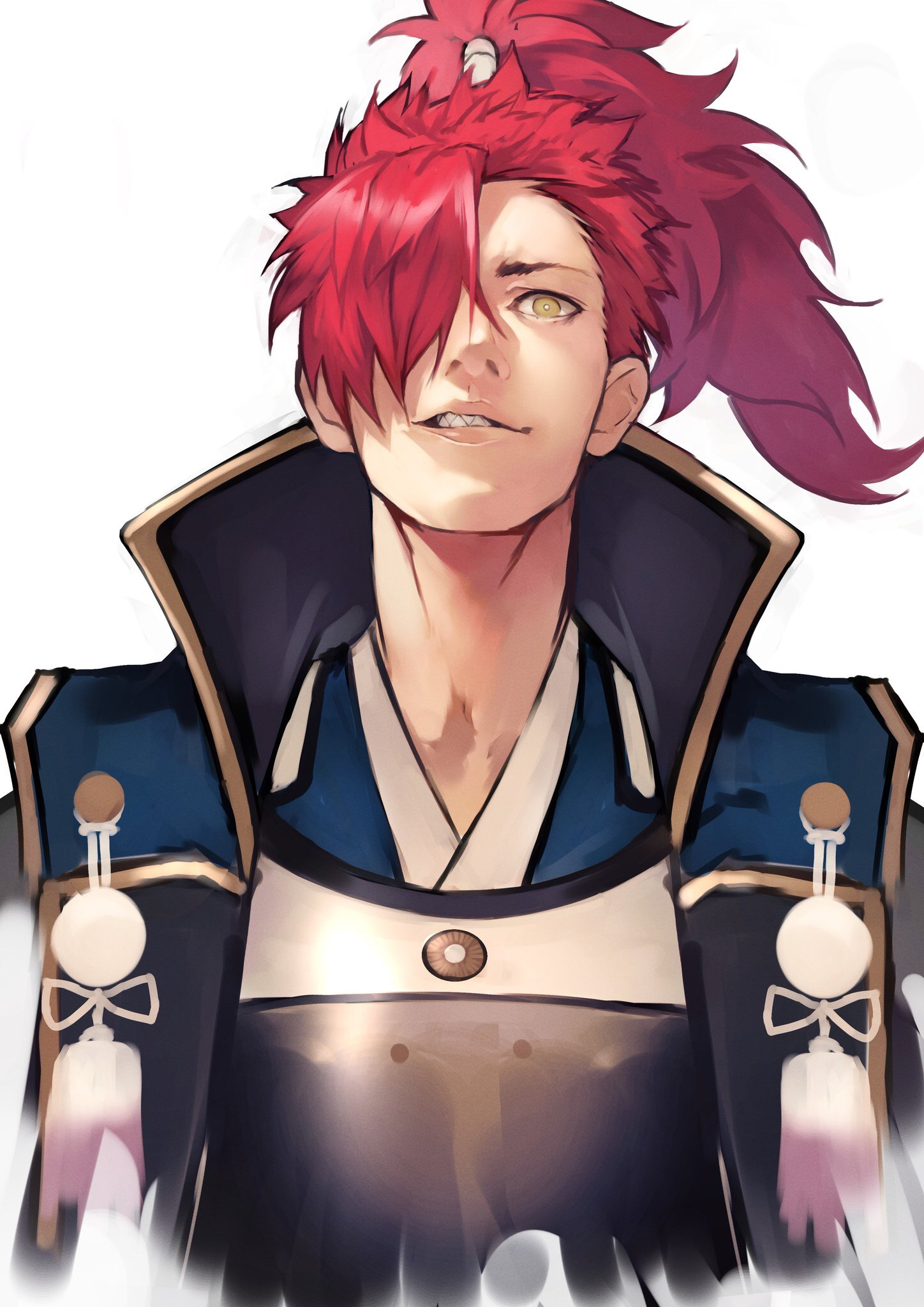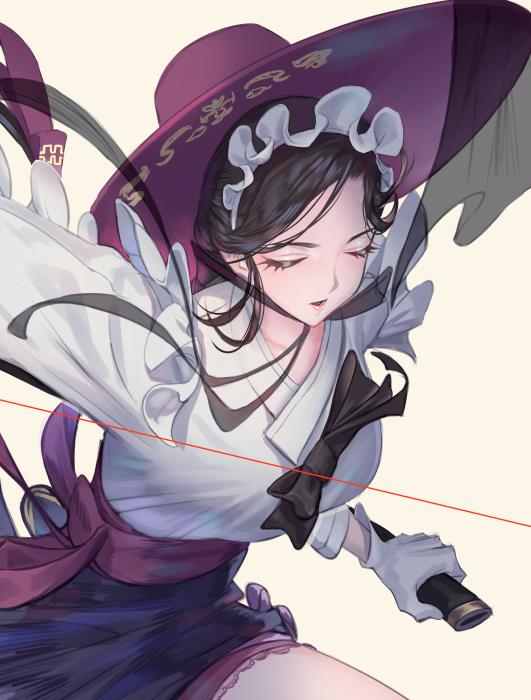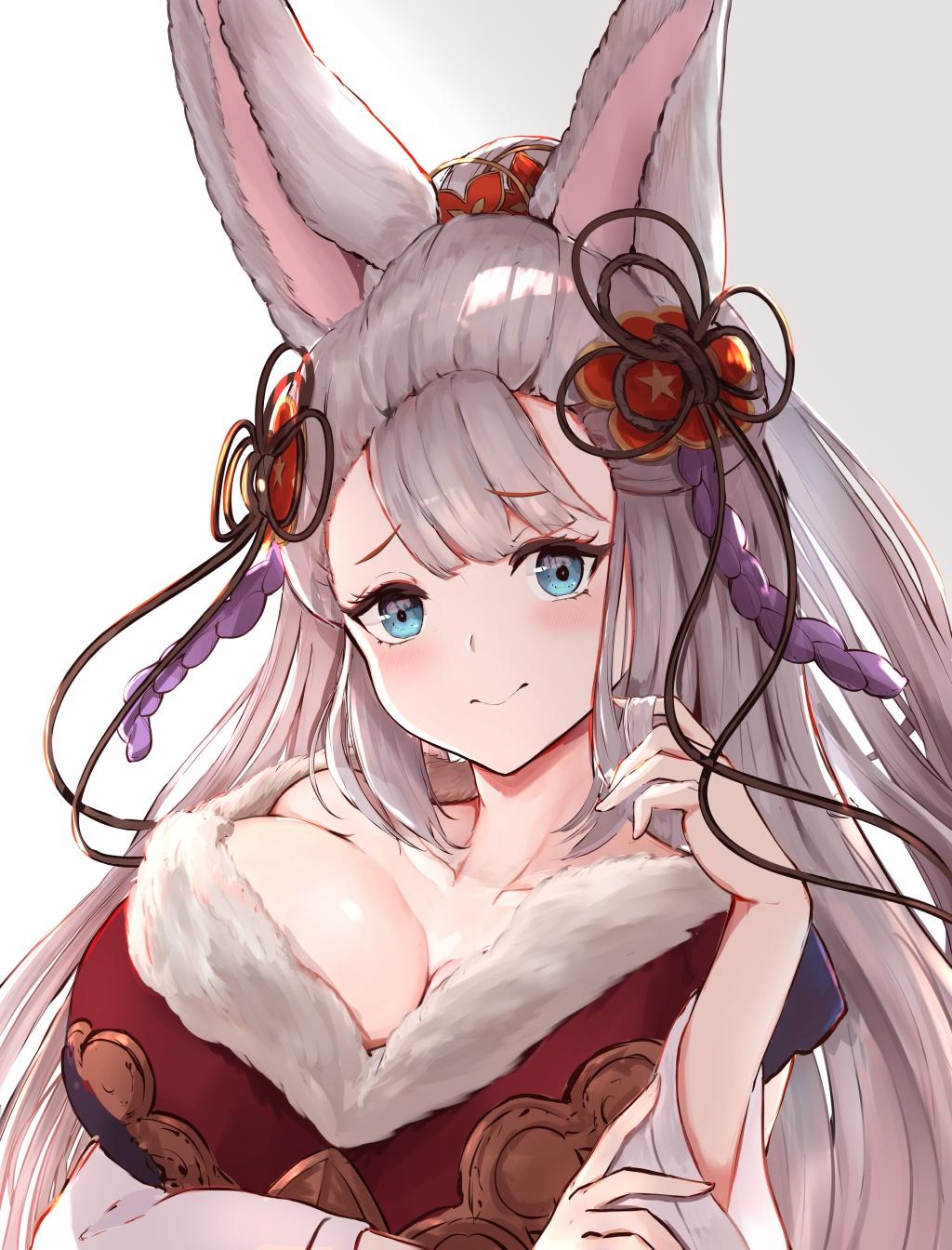Introduction
Pilgrim59
👑 Exalted Monarch 👑
道书
RECORDS OF THE WHITE PLUMES
Integral Mechanics
Realm Affairs
Occasionally, players will be summoned to attend the court at Orchid Manor to resolve certain issues pertaining to the realm's development. Seasonal aspects may incur benefits and penalties to the kingdom. Many important events that transpire will require the court of Dao to resolve immediately within a certain timeline, taking priority over other details. These tasks may be delegated to certain characters to facilitate their personal growth at times. Due to the everchanging prestige of the court and their prominence, certain opportunities are more likely to arise based on an individual's growth and their Wu Xing alignment. Keep in mind that your character's actions and their reputation may reflect how others perceive them. While the characters may voice their suggestions within the court, it is ultimately up to Dao Chaolong to action these changes. Consequentially, too many reforms or changes may invite clamors for tradition or cause problematic frictions between the classes. Every action has an equal and opposite reaction.
"Heaven and earth. Light and darkness. Integrity and injustice. War and peace. One cannot exist without the other."
- Xu Yue, Statesman. (89 - 145 AC)
Imperium: Governor (Dominion of Dao)
Faction Influence: An insignificant vapour in the heartless wind. Cobwebs reside upon silent instruments and the people are in need of guidance. Idle hands are the devil's workshop.
Weilang's influence over the realm and their growing prestige are measured by their subjects' contribution, which in turn constitutes much of the state's imperium. Monumental constructions, technological advancements, and national reforms also count towards the growth of the dominion as a whole. While it shows the state's might and advantages, a state's rising imperium can also attract diplomatic concerns and rivalries. As the dominion grows, many positions given to the players are subject to change. Transition of imperium and influence can affect many characters, as well as their overall responsibilities.
For example, a player may be offered a promotion from Drillmaster to Banner Officer. Where they once managed the training of troops must now also lead a detahment into battle.
"Prosperity and stability invites corruption and negligence, should we omit our duties."
- Kuroda Yuji, Governor of Rokusan.
Occasionally, players will be summoned to attend the court at Orchid Manor to resolve certain issues pertaining to the realm's development. Seasonal aspects may incur benefits and penalties to the kingdom. Many important events that transpire will require the court of Dao to resolve immediately within a certain timeline, taking priority over other details. These tasks may be delegated to certain characters to facilitate their personal growth at times. Due to the everchanging prestige of the court and their prominence, certain opportunities are more likely to arise based on an individual's growth and their Wu Xing alignment. Keep in mind that your character's actions and their reputation may reflect how others perceive them. While the characters may voice their suggestions within the court, it is ultimately up to Dao Chaolong to action these changes. Consequentially, too many reforms or changes may invite clamors for tradition or cause problematic frictions between the classes. Every action has an equal and opposite reaction.
"Heaven and earth. Light and darkness. Integrity and injustice. War and peace. One cannot exist without the other."
- Xu Yue, Statesman. (89 - 145 AC)
Imperium: Governor (Dominion of Dao)
Faction Influence: An insignificant vapour in the heartless wind. Cobwebs reside upon silent instruments and the people are in need of guidance. Idle hands are the devil's workshop.
Weilang's influence over the realm and their growing prestige are measured by their subjects' contribution, which in turn constitutes much of the state's imperium. Monumental constructions, technological advancements, and national reforms also count towards the growth of the dominion as a whole. While it shows the state's might and advantages, a state's rising imperium can also attract diplomatic concerns and rivalries. As the dominion grows, many positions given to the players are subject to change. Transition of imperium and influence can affect many characters, as well as their overall responsibilities.
For example, a player may be offered a promotion from Drillmaster to Banner Officer. Where they once managed the training of troops must now also lead a detahment into battle.
"Prosperity and stability invites corruption and negligence, should we omit our duties."
- Kuroda Yuji, Governor of Rokusan.
Dao Family's History
The Dao clan has been a loyal subject to the Empire since its founding. Generations of subservient and brave loyalists. The family name is among the most influential within the Imperial Court, and has been honored for their humble legacy. The clan's roots can be traced back to Dao Shenji, a humble fisherman that joined Seo Ri on the latter's quest to dispel the Great Evil that was the Shi Qeki. Despite their simple background, Dao Shenji is often considered one of the greater Nine Champions of Seo Ri, often revered by his successors as a philanthropist and an upright keeper of peace. His distant descendant, Dao Yanjin, is often considered to be his true successor.
Despite the family's honorable legacy, the Dao's heritage and influence eventually faded. Following an assassination attempt on the third Emperor Yuu of Jianki, the Dao family was discredited by the other eight heroic clans for their failure to apprehend the assailant. The head of the family at the time, Dao Yuan, had captured the assassin, but chose to release them. While many sources claim that the assassin hailed from the Dao family themselves, others dispute the idea with the accounts written by Shen Menghua, an advisor of Dao Yuan. In his Filial & Piety scroll, Shen wrote "...evil committed out of good, while good deeds are masked by wicked intentions. My master is a faithful subject of the Empire. Our captive guest, I speculate, must have shared my master's will to right the increasingly corrupt tendencies of the Empire. But that is a matter between them, that I can never justify in the eyes of the temperamental Eight.". Ultimately, the Dao family saw a decline in influence since the ordeal.
Rather than subjected to familial uprooting and inevitable execution for Yuan's decision, the Dao family was stripped of their inheritance and their estates reduced to a mere holding of a small village in the heartland of the underdeveloped land of Chenbei. Dao Yuan gracefully accepted the Imperial Court's decree without protest, much to the surprise of his opposition and the rest of the Eight Heroic Families. Some speculated that Dao Yuan's decision was a subtle exit from the grasp of Taiyang, in hopes of keeping his family safe in the countryside rather than being subjected to a slow death in Hanbei. In the end, the Dao family's exile proved to be a positive factor in their future endeavors. For the next four generations, the Dao family's initially meek foundation upon Weilang would transform the small village into a bustling city for the eyes of Jianki to behold.
Dao Chaolong's father, Dao Yanjin, was a son of a concubine, faced with every disadvantage possible in his youth. Often neglected by his father, Yanjin was raised by his loving mother, who had shaped his principles of mediation and benevolence. Yanjin and his mother were given a small estate by the Crimson River, far from Weilang - the extent of his father's faded affections. It was here that Yanjin sought to take care of his mother by taking on odd jobs by the river - honing his skill as a part-time ferryman and a fisherman. When Yanjin came of age, his mother had passed on, leaving behind what little income she saved for her son. The impoverished Yanjin, with no support from his father, enlisted in the army. When deployed to the frontier, Yanjin made a name for himself when he rescued his entire company that was trapped behind enemy lines. Using his wit and skills as a ferryman, Yanjin ferried his wounded comrades across the Serpentine River, using the night as concealment. Upon their return to the Imperial encampment, Yanjin was praised as a heroic soldier and promoted to captain. Those that were rescued by him would fall under his command.
Among them was a young captain by the name of Lu Dang, the youngest son of Governor Lu Pang in Chanlang. Lu Dang and Yanjin's friendship developed soon after, forged in the trials of fire and frigid hardships. After twenty years of service, the two returned home to Chenbei. Upon Yanjin's return to Weilang, his envious siblings sought to rid the son of the concubine that they were taught to despise. However, Yanjin was backed by his best friend, Lu Dang, when the latter paid a visit, bearing gifts from Chanlang. Yanjin's father simply acknowledged Yanjin's growth with a mere nod, with little words to spare, despite Yanjin's efforts. For the next ten years, Yanjin remained in Weilang as a provincial adjutant. Where his siblings squandered their wealth for their personal extravagance, Yanjin heeded his mother's last words and actions. Yanjin's savings were spent on housing projects and gifted to orphanages throughout Weilang. On his vacant days, Yanjin would often aid the field workers and laborers with constructions and take on ferryman duties. Yanjin eventually earned the nickname "Virtuous Commander" among the people of Weilang. Dao Yanjin and Lu Dang's friendship never faded, as the two often paid visits to each other's home with their hometown's harvest and rare commodities. It was their unbreakable bond that brought the Dao and Lu family together since their return from Zhong Pass. To this day, Yanjin and Dang's relationship is often revered by the people of Chanlang and Weilang, setting an example for their people to coexist and prosper in unity.
When Yanjin's father fell ill, Dang was the first to show up on their doors. It was said that Lu Dang had rode hard to Weilang in the night, exchanging three horses to be by Yanjin's side. Upon his death bed, Yanjin's father brokered his final words, etching it deep into Yanjin's memories. Despite their distance and differences, it was revealed that Yanjin's father had always been watching over Yanjin since he sent them away. Yanjin's father's regrets were solemn but unspoken. Yanjin realized there and then that his father had yet to name a successor. In his final moments, he was proud of Yanjin's achievements and development, decreeing that Yanjin would succeed him instead of the others. With Lu Dang's presence during the grieving of his best friend's father's passing, Yanjin's brothers were unable to make a move. Their hubristic sentiments and petty contempt were dissuaded by Lu Dang's fierce gaze alone. Upon Yanjin's succession as the next governor of Weilang, he made his siblings work in the fields alongside him. By exposing his princely-raised brothers to the hardships of their subjects, he gave them a sense of humility and a chance to change the people's perspective of their lords. Eventually, some submitted to the notion, and made no further attempts to depose Yanjin's rightfully earned governorship. Dao Ren, Yanjin's younger brother, held tightly on his concealed contempt, poised on finding the right time and place to displace his brother. Having squandered his fortunes, Ren turned to Yanjin for support but was turned down. Bitter at his brother, Ren planned his vengeance in secret.
After twenty years of governance, Lu Dang came down with jungle fever during their time in Mengliang. Yanjin paid his best friend a visit, as they passed away a couple of days later. Yanjin grieved for Dang for a whole month, before returning home to Weilang, where he himself came down with respiratory disease.
When Yanjin fell ill, Ren returned to Weilang. With Lu Dang gone and Yanjin bed-ridden, Ren abided by his time. When Yanjin finally gave in to his ailments, Ren seized Weilang for himself. Yanjin's son, Dao Chaolong, was framed by his uncle Ren, for poisoning Yanjin. With Chaolong's exile, Ren had finally got his plans realized. Despite this, Ren wanted to pluck the grass at its roots by sending assassins after Chaolong. By this time, the young Chaolong was forced to the end of his road at the edge of the Crimson River. By Heaven's mercy, Chaolong came upon a man his age floating downstream. Despite his wounds, Chaolong fished the man out of the water. It was here that Chaolong's life would be turned around.
Despite the family's honorable legacy, the Dao's heritage and influence eventually faded. Following an assassination attempt on the third Emperor Yuu of Jianki, the Dao family was discredited by the other eight heroic clans for their failure to apprehend the assailant. The head of the family at the time, Dao Yuan, had captured the assassin, but chose to release them. While many sources claim that the assassin hailed from the Dao family themselves, others dispute the idea with the accounts written by Shen Menghua, an advisor of Dao Yuan. In his Filial & Piety scroll, Shen wrote "...evil committed out of good, while good deeds are masked by wicked intentions. My master is a faithful subject of the Empire. Our captive guest, I speculate, must have shared my master's will to right the increasingly corrupt tendencies of the Empire. But that is a matter between them, that I can never justify in the eyes of the temperamental Eight.". Ultimately, the Dao family saw a decline in influence since the ordeal.
Rather than subjected to familial uprooting and inevitable execution for Yuan's decision, the Dao family was stripped of their inheritance and their estates reduced to a mere holding of a small village in the heartland of the underdeveloped land of Chenbei. Dao Yuan gracefully accepted the Imperial Court's decree without protest, much to the surprise of his opposition and the rest of the Eight Heroic Families. Some speculated that Dao Yuan's decision was a subtle exit from the grasp of Taiyang, in hopes of keeping his family safe in the countryside rather than being subjected to a slow death in Hanbei. In the end, the Dao family's exile proved to be a positive factor in their future endeavors. For the next four generations, the Dao family's initially meek foundation upon Weilang would transform the small village into a bustling city for the eyes of Jianki to behold.
Dao Chaolong's father, Dao Yanjin, was a son of a concubine, faced with every disadvantage possible in his youth. Often neglected by his father, Yanjin was raised by his loving mother, who had shaped his principles of mediation and benevolence. Yanjin and his mother were given a small estate by the Crimson River, far from Weilang - the extent of his father's faded affections. It was here that Yanjin sought to take care of his mother by taking on odd jobs by the river - honing his skill as a part-time ferryman and a fisherman. When Yanjin came of age, his mother had passed on, leaving behind what little income she saved for her son. The impoverished Yanjin, with no support from his father, enlisted in the army. When deployed to the frontier, Yanjin made a name for himself when he rescued his entire company that was trapped behind enemy lines. Using his wit and skills as a ferryman, Yanjin ferried his wounded comrades across the Serpentine River, using the night as concealment. Upon their return to the Imperial encampment, Yanjin was praised as a heroic soldier and promoted to captain. Those that were rescued by him would fall under his command.
Among them was a young captain by the name of Lu Dang, the youngest son of Governor Lu Pang in Chanlang. Lu Dang and Yanjin's friendship developed soon after, forged in the trials of fire and frigid hardships. After twenty years of service, the two returned home to Chenbei. Upon Yanjin's return to Weilang, his envious siblings sought to rid the son of the concubine that they were taught to despise. However, Yanjin was backed by his best friend, Lu Dang, when the latter paid a visit, bearing gifts from Chanlang. Yanjin's father simply acknowledged Yanjin's growth with a mere nod, with little words to spare, despite Yanjin's efforts. For the next ten years, Yanjin remained in Weilang as a provincial adjutant. Where his siblings squandered their wealth for their personal extravagance, Yanjin heeded his mother's last words and actions. Yanjin's savings were spent on housing projects and gifted to orphanages throughout Weilang. On his vacant days, Yanjin would often aid the field workers and laborers with constructions and take on ferryman duties. Yanjin eventually earned the nickname "Virtuous Commander" among the people of Weilang. Dao Yanjin and Lu Dang's friendship never faded, as the two often paid visits to each other's home with their hometown's harvest and rare commodities. It was their unbreakable bond that brought the Dao and Lu family together since their return from Zhong Pass. To this day, Yanjin and Dang's relationship is often revered by the people of Chanlang and Weilang, setting an example for their people to coexist and prosper in unity.
When Yanjin's father fell ill, Dang was the first to show up on their doors. It was said that Lu Dang had rode hard to Weilang in the night, exchanging three horses to be by Yanjin's side. Upon his death bed, Yanjin's father brokered his final words, etching it deep into Yanjin's memories. Despite their distance and differences, it was revealed that Yanjin's father had always been watching over Yanjin since he sent them away. Yanjin's father's regrets were solemn but unspoken. Yanjin realized there and then that his father had yet to name a successor. In his final moments, he was proud of Yanjin's achievements and development, decreeing that Yanjin would succeed him instead of the others. With Lu Dang's presence during the grieving of his best friend's father's passing, Yanjin's brothers were unable to make a move. Their hubristic sentiments and petty contempt were dissuaded by Lu Dang's fierce gaze alone. Upon Yanjin's succession as the next governor of Weilang, he made his siblings work in the fields alongside him. By exposing his princely-raised brothers to the hardships of their subjects, he gave them a sense of humility and a chance to change the people's perspective of their lords. Eventually, some submitted to the notion, and made no further attempts to depose Yanjin's rightfully earned governorship. Dao Ren, Yanjin's younger brother, held tightly on his concealed contempt, poised on finding the right time and place to displace his brother. Having squandered his fortunes, Ren turned to Yanjin for support but was turned down. Bitter at his brother, Ren planned his vengeance in secret.
After twenty years of governance, Lu Dang came down with jungle fever during their time in Mengliang. Yanjin paid his best friend a visit, as they passed away a couple of days later. Yanjin grieved for Dang for a whole month, before returning home to Weilang, where he himself came down with respiratory disease.
When Yanjin fell ill, Ren returned to Weilang. With Lu Dang gone and Yanjin bed-ridden, Ren abided by his time. When Yanjin finally gave in to his ailments, Ren seized Weilang for himself. Yanjin's son, Dao Chaolong, was framed by his uncle Ren, for poisoning Yanjin. With Chaolong's exile, Ren had finally got his plans realized. Despite this, Ren wanted to pluck the grass at its roots by sending assassins after Chaolong. By this time, the young Chaolong was forced to the end of his road at the edge of the Crimson River. By Heaven's mercy, Chaolong came upon a man his age floating downstream. Despite his wounds, Chaolong fished the man out of the water. It was here that Chaolong's life would be turned around.
Last edited:


